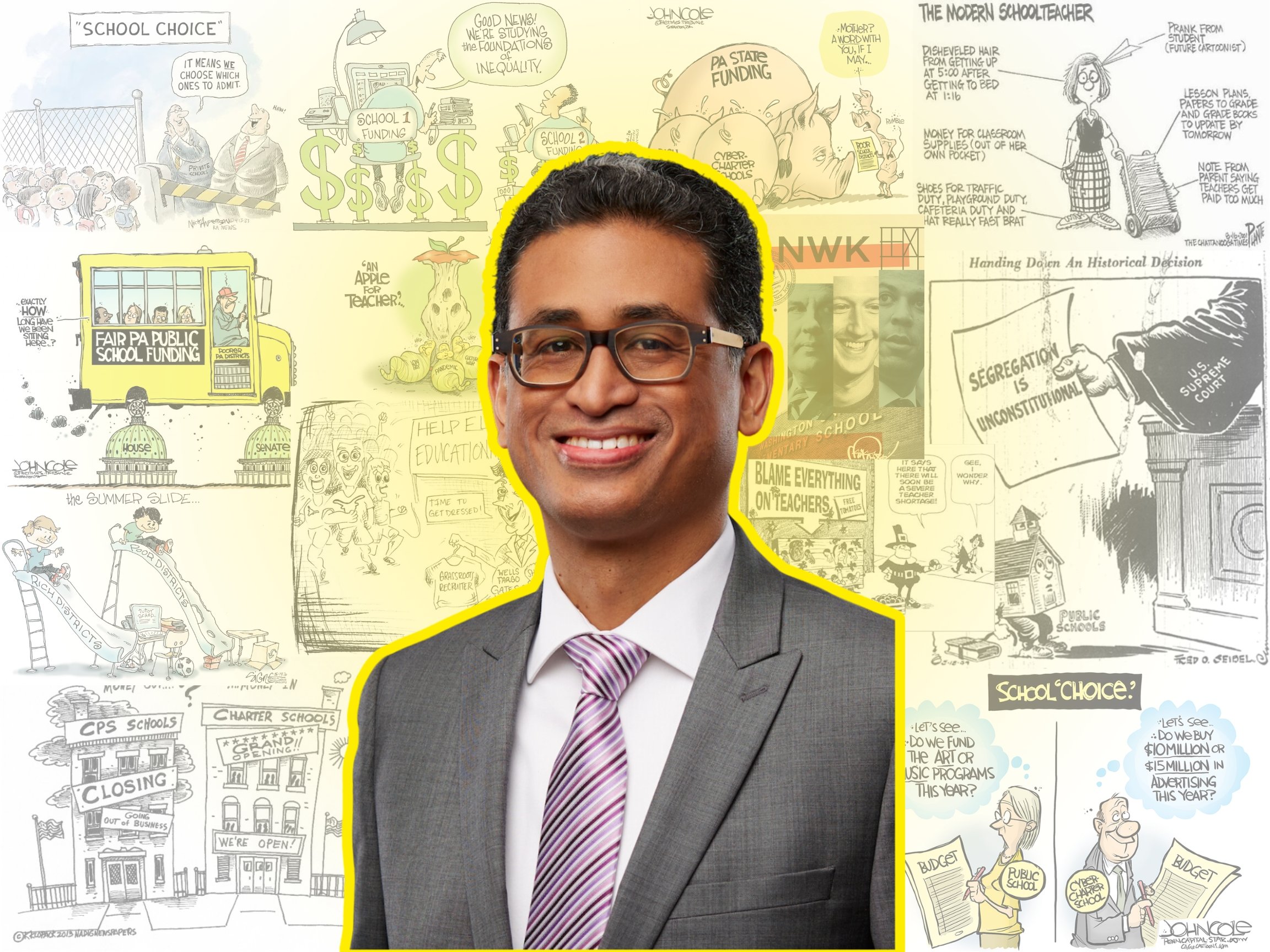
Annotated Transcript
Take a moment to review the various courses I completed during my time pursuing my master's degree.
Philosophical Aspects of Education Policy
Dr. Sigal Ben-Porath
Philosophical Aspects of Education Policy or Justice goes to School with Dr. Sigal Ben-Porath, focused on the philosophical dimensions of policy decisions made in education. Through small group and whole classroom discussions we were encouraged to open up our minds to diverse perspectives on various educational issues. The readings and discussion on “right to an open future” at the beginning of the semester changed the way I viewed certain topics. The course delved deeper into the right to educate and be educated, and different stakeholders in the process of deciding who has rights and when they are granted.
Outside the School Box: History, Policy and Alternatives
Dr. Michael Johanek
Outside the School Box: History, Policy and Alternatives with Dr. Michael Johanek, an educational historian, looked at education beyond schooling. Every week, we were exposed to different ways we are educated and how the system works. Topics like community schooling, social capital in education, education as a civil religion and educational markets were the highlights for me. A discussion-based classroom that oftentimes left us with more questions than we began with.
School and Society
Dr. Kathleen D. Hall
School and Society in America with Dr. Kathleen Hall, an anthropologist dedicated to studying immigration, race relations, education, citizenship, cultural politics, and related topics, focuses on the purpose of education and the diverse dynamics within schools in the US and around the world. Through small group and class discussions, we strive to comprehend the broader influences of social, cultural, historical, economic, and political forces that impact and shape the educational system.
Politics of School Reform
Dr. Rand Quinn
Politics of School Reform with Dr. Rand Quinn, a political sociologist who studies the origins and consequences of education organizing and activism, delves into fundamental questions about the purpose of schooling and the perpetual cycle of education reform. Through compelling weekly readings and case studies, the course sparks profound discussions on equal educational opportunities, standards and accountability, teacher effectiveness, marketization, private sector initiatives, and community control. Additionally, three book clubs offer concrete examples of nationwide educational challenges throughout the semester, enriching the learning experience.
Classroom Discourse
Dr. Sigal Ben-Porath & Dr. Abby Reisman
Classroom Discourse with Dr. Sigal Ben-Porath and Abby Reisman emphasizes the importance of classroom discourse in today's society. With growing polarization, there is a fear that our civic institutions may be unable to withstand it. Through this course, students explore questions surrounding classroom discourse in both K-12 and higher education. The readings and discussions focus on the democratic, humanistic, and civic significance of classroom discourse and its connection to student learning outcomes. The course begins with a philosophical approach and concludes with a practical one, providing students with a comprehensive understanding of the issues at hand.
Expanding Civic Opportunities for Youth
Dr. Rand Quinn
Expanding Civic Opportunities for Youth with Dr. Rand aims to support civic engagement efforts in Philadelphia public schools. The course is divided into two parts. The first part focuses on understanding civic deliberation and project-based learning, laying the foundation for the workshops to be facilitated later. The second part is more hands-on, involving direct work with 6th graders at Hamilton Elementary School. In this part, we design and deliver multi-session workshops on school-based issues chosen by the students. For our cohort, it was improving recess.
Education in Developing Countries
Dr. Ameena Ghaffar-Kucher
Education in Developing Countries with Dr. Ghaffar-Kucher critically examined the concept of "development" in education, exploring whether it remained relevant at that time. We studied key theoretical frameworks and historical perspectives to better understand how "development" related to educational planning and practice in various international settings. This course was divided into two parts. In the first section, we explored the historical and theoretical foundations of "development" and how it connects to broader economic, political, and social progress. The second part focused more on the practical side, examining the roles of various actors, institutions, and policies in shaping international educational development. We looked closely at issues like equity and access to quality education.
Language Diversity and Education
Dr. Nelson Flores
Language Diversity and Education with Dr. Flores focused on exploring the diverse issues impacting educational policy and classroom practice in multilingual settings. The course used a combination of U.S. and international case studies to examine how language and literacy development were shaped in formal educational contexts. It analyzed policies, program structures, and the dynamics of teaching and learning in multilingual classrooms. The course also explored the roles of discourses, ideologies, and identities in shaping multilingual education. A key component was understanding how teachers, researchers, and communities contributed to implementing meaningful change in schools.
Qualitative Methods
Dr. Nicole Mittenfelner Carl
Dr. Carl’s Qualitative Methods course started with the core philosophies and practical tools of qualitative research. We did not just read about developing researchable questions or collecting data; we actively engaged with it. Through readings, discussions, and hands-on exercises, we tackled important topics like validity, ethics, voice, and representation in research. Throughout, we were conducting our small-scale exploratory studies, which gave us the chance to apply everything we had learned.
Master’s Seminar in Education, Culture, and Society
Dr. Leigh Graham & Dr. Alex Posecznick
The year-long Master's Seminar in Education, Culture, and Society provided me with the opportunity to reflect on my academic journey and develop my capstone portfolio (this website). Through collaborative work and direction from Dr. Graham and my advisor, I received invaluable feedback and formed connections with peers and faculty focused on my research topics.











